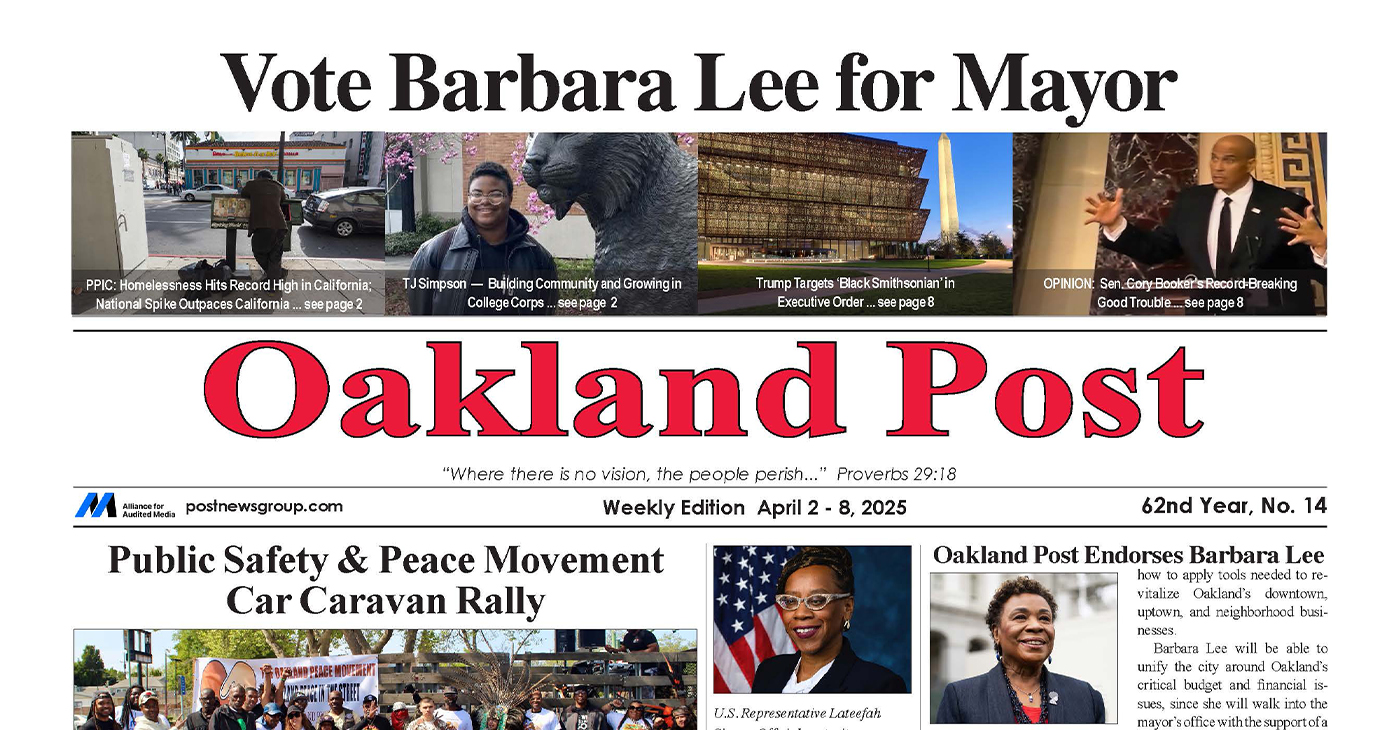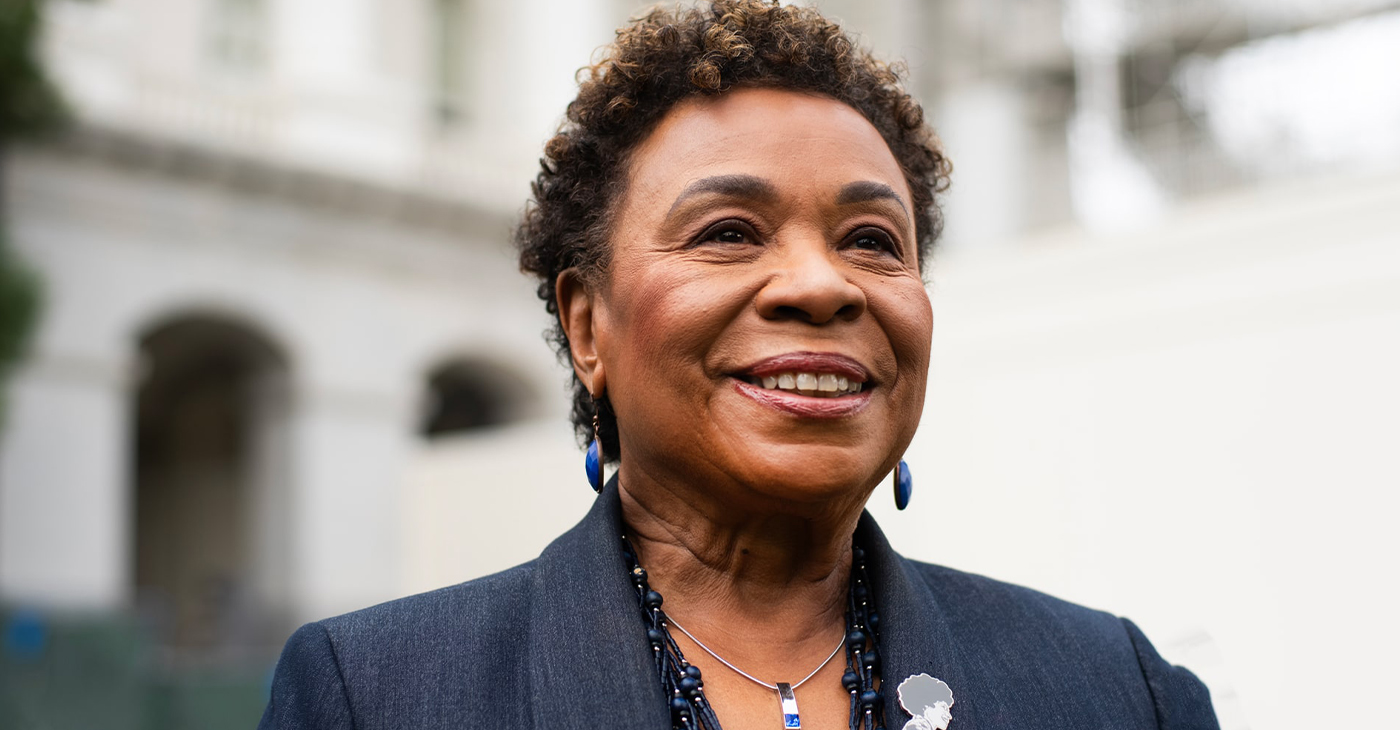Commentary
COMMENTARY: For Black Children, Attending School Is an Act of Racial Justice
NNPA NEWSWIRE — In the 2015-16 school year, Black boys made up 8 percent of public school enrollment, but they were 25 percent of the boys suspended out of school. Black girls were 8 percent of enrollment, but 14 percent of the girls suspended out of school. While Black children are overrepresented in practices that exclude or remove students from school, White children are underrepresented. Such data are clear evidence that racism and bias often drive exclusionary practices. To ignore this is to preserve the status quo.

Kayla Patrick
By Kayla Patrick, The Education Trust
As a seemingly twisted way to ring in 2019, the Trump administration has sent a loud and clear message that it’s okay for educators and school leaders to keep Black children out of school buildings and exclude them from opportunities to learn. It may sound extreme, but that’s exactly what it means to rescind school discipline guidance that was put in place explicitly to ensure that Black children were not treated this way and discriminated against.
The current administration, however, wants us to believe that discrimination against Black children is a myth. It is not. It is the lived experience of too many, if not all Black children. In the 2015-16 school year, Black boys made up 8 percent of public school enrollment, but they were 25 percent of the boys suspended out of school. Black girls were 8 percent of enrollment, but 14 percent of the girls suspended out of school. While Black children are overrepresented in practices that exclude or remove students from school, White children are underrepresented. Such data are clear evidence that racism and bias often drive exclusionary practices. To ignore this is to preserve the status quo.
If the numbers aren’t enough to show that discrimination exists in American classrooms, studies have shown that Black children do not misbehave more than their White peers, rather they are punished more. In fact, Black students are more likely than their White peers to receive a disciplinary action for a discretionary offense like talking back, violating a dress code, or being defiant. Black children are also more likely to be suspended out of school for their first offense. Clear, appropriate, and consistent consequences and educator training — as the guidance calls for — helps to eliminate the discrimination and bias that fuel the disproportionate punishment of Black children.
This administration would also have us believe that discipline disparities are a result of poverty, arguing that experiencing childhood trauma and living in distressed communities are to blame. But poverty cannot explain away the discipline disparities: Studies have shown that when taking a student’s economic background into account, Black children are still more likely to be suspended than students of other races. And let’s not forget that poverty, too, is a result of deliberate policy choices that leave Black children isolated in neighborhoods with little resources — including the longstanding impact of discriminatory housing policies such as redlining. These are choices that this administration has done nothing to address.
What many (including this administration) fail to realize is that there is a difference between discipline and punishment. Suspensions and expulsions don’t teach. They punish. And far too often, adults decide that Black children are not worthy of teaching and second chances. Excluding students from classrooms does not help them to correct the mistakes that children inevitably make. It also has negative long-term consequences. These negative outcomes include poor academic performance, lower levels of engagement, leaving school, and increased likelihood of involvement with the criminal justice system.
Unfortunately, attempts to exclude Black children from educational opportunities are not new. America has a rich history of locking Black children out of the classroom. This list includes anti-literacy laws, past and current resistance to school desegregation, lack of access to well-resourced schools, school based arrests, poor course access, enormous higher education costs, and unjust exclusionary policies. Every barrier and trick in the book has been used to limit the education of Black children. The removal of the discipline guidance is just the latest.
Rescinding the guidance is a reminder to those fighting for educational equity: For Black children, simply attending school is an act of protest, and learning and excelling while there is an act of racial justice. Every time a Black child is sent home for a minor offense, they are sent the message that they are unwanted or don’t belong. But Black children do belong, and they deserve to be safe, included, and to have access to a quality education. Despite the current administration’s actions, this is the message that advocates must make clear at the beginning of 2019 — and every year hereafter.
It’s up to us as advocates for educational justice to ensure that schools do not illegally discriminate against Black children. Encourage school leaders to commit to ongoing racial bias training; require culturally sustaining classroom management strategies; examine their school and district data to help determine if race and bias are driving who gets punished; adopt clear, fair, and transparent consequences; and eliminate school exclusion for discretionary non-violent offenses.
For more, watch John B. King Jr. break down how we can break the school-to-prison pipeline.
This former education secretary says Betsy DeVos is ensuring the school-to-prison pipeline stays open for children of color pic.twitter.com/hOtebcxRyI
— NowThis (@nowthisnews) December 29, 2018
Activism
Oakland Post: Week of April 2 – 8, 2025
The printed Weekly Edition of the Oakland Post: Week of April 2 – 8, 2025

To enlarge your view of this issue, use the slider, magnifying glass icon or full page icon in the lower right corner of the browser window.
Activism
Oakland Post Endorses Barbara Lee
Barbara Lee will be able to unify the city around Oakland’s critical budget and financial issues, since she will walk into the mayor’s office with the support of a super majority of seven city council members — enabling her to achieve much-needed consensus on moving Oakland into a successful future.

As we end the celebration of Women’s History Month in Oakland, we endorse Barbara Lee, a woman of demonstrated historical significance. In our opinion, she has the best chance of uniting the city and achieving our needs for affordable housing, public safety, and fiscal accountability.
As a former small business owner, Barbara Lee understands how to apply tools needed to revitalize Oakland’s downtown, uptown, and neighborhood businesses.
Barbara Lee will be able to unify the city around Oakland’s critical budget and financial issues, since she will walk into the mayor’s office with the support of a super majority of seven city council members — enabling her to achieve much-needed consensus on moving Oakland into a successful future.
It is notable that many of those who fought politically on both sides of the recent recall election battles have now laid down their weapons and become brothers and sisters in support of Barbara Lee. The Oakland Post is pleased to join them.
Activism
Oakland Post: Week of March 28 – April 1, 2025
The printed Weekly Edition of the Oakland Post: Week of March 28 – April 1, 2025

To enlarge your view of this issue, use the slider, magnifying glass icon or full page icon in the lower right corner of the browser window.
-

 Activism3 weeks ago
Activism3 weeks agoWe Fought on Opposite Sides of the Sheng Thao Recall. Here’s Why We’re Uniting Behind Barbara Lee for Oakland Mayor
-

 Activism4 weeks ago
Activism4 weeks agoSan Francisco Is Investing Millions to Address Food Insecurity. Is Oakland Doing the Same?
-

 #NNPA BlackPress3 weeks ago
#NNPA BlackPress3 weeks agoRev. Dr. Jamal Bryant’s Black Church Target Boycott Mobilizes 150,000
-

 Activism3 weeks ago
Activism3 weeks agoFaith Leaders Back Barbara Lee for Mayor, Criticize Candidate Loren Taylor for Dishonest Campaigning
-

 Activism4 weeks ago
Activism4 weeks agoOakland Post: Week of March 12 – 18, 2025
-

 #NNPA BlackPress3 weeks ago
#NNPA BlackPress3 weeks agoRecently Approved Budget Plan Favors Wealthy, Slashes Aid to Low-Income Americans
-

 Activism3 weeks ago
Activism3 weeks agoGroup Takes First Steps to Recall District Attorney Diana Becton
-

 Activism2 weeks ago
Activism2 weeks agoOakland’s Most Vulnerable Neighborhoods Are Struggling to Eat and Stay Healthy
























































